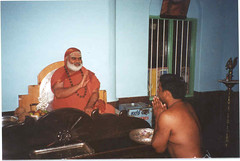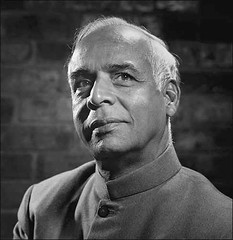Causation means succession in time of events in space, the space being physical or mental. Time, space, causation are mental categories, arising and subsiding with the mind.
Like everything mental, the so-called law of causation contradicts itself. No thing in existence has a particular cause; the entire universe contributes to the existence of even the smallest thing; nothing could be as it is without the universe being what it is. When the source and ground of everything is the only cause of everything, to speak of causality as a universal law is wrong. The universe is not bound by its content, because its potentialities are infinite; besides it is a manifestation, or expression of a principle fundamentally and totally free.
A lot of such activity is going on, because of ignorance. Would people know that nothing can happen unless the entire universe makes it happen, they would achieve much more with less expenditure of energy!
The very urge to achieve is also an expression of the total universe. It merely shows that the energy potential has risen at a particular point. It is the illusion of time that makes you talk of causality. When the past and the future are seen in the timeless now, as parts of a common pattern, the idea of cause-effect loses its validity and creative freedom takes its place.
When I say a thing is without a cause, I mean it can be without a particular cause. Your own mother was needed to give you birth; But you could not have been born without the sun and the earth. Even these could not have caused your birth without your own desire to be born. It is desire that gives birth, that gives name and form. The desirable is imagined and wanted and manifests itself as something tangible or conceivable. Thus is created the world in which we live, our personal world. The real world is beyond the mind's ken; we see it through the net of our desires, divided into pleasure and pain, right and wrong, inner and outer. To see the universe as it is, you must step beyond the net. It is not hard to do so, for the net is full of holes.
Source : I AM THAT, dialogues with Nisargadatta Maharaj


